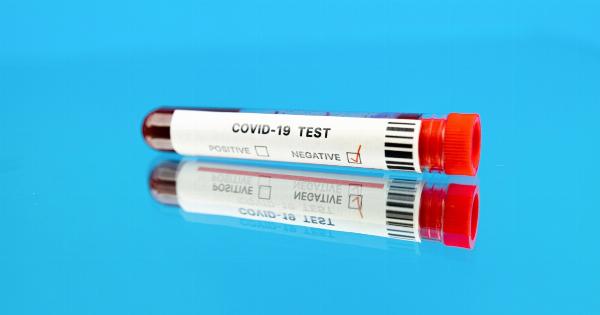Middle East respiratory syndrome coronavirus (MERS-CoV) is a viral respiratory illness first identified in Saudi Arabia in 2012. The disease spread quickly across the country, infecting thousands of people and claiming hundreds of lives.
It soon became a global health concern, with cases being reported in other parts of the Middle East, Asia, and, in some cases, the United States and Europe.
However, despite efforts to control the spread of the virus and improve reporting, Saudi Arabia has been criticized for its inaccurate reporting of MERS cases.
This has led to confusion among the general public and healthcare professionals, making it difficult to understand the full extent of the MERS outbreak in the country. One of the primary reasons for this inaccurate reporting is the counting mishaps that occur during the process of reporting MERS cases.
What Are Counting Mishaps?
Counting mishaps refer to errors that occur when healthcare professionals count the number of MERS cases in their respective facilities or regions.
These errors can take many forms, but they generally involve the misclassification of MERS cases, the underreporting of cases, or the over-reporting of cases.
For example, a healthcare professional might mistakenly classify a patient’s symptoms as something other than MERS, leading to an underreporting of cases.
Alternatively, a healthcare professional might overestimate the number of MERS cases in a hospital or region, leading to an over-reporting of cases. These errors can cause confusion and mistrust among those monitoring the MERS outbreak.
The Impact of Counting Mishaps on MERS Reporting in Saudi Arabia
The inaccurate reporting of MERS cases in Saudi Arabia has had significant public health implications.
For example, inaccurate reporting can make it more difficult for healthcare professionals to identify and isolate MERS cases, increasing the risk of transmission to others.
Inaccurate reporting can also lead to confusion and mistrust among the general public.
If people are not given accurate and timely information about the extent of the MERS outbreak, they may be less likely to take preventative measures such as washing their hands regularly and avoiding close contact with sick individuals.
Additionally, inaccurate reporting can make it more difficult for healthcare professionals to assess the effectiveness of MERS prevention and control measures.
If the number of MERS cases is not accurately reported, it’s more difficult to determine whether measures such as isolation and quarantine are working effectively.
Factors Contributing to Counting Mishaps
There are many factors that contribute to counting mishaps in MERS reporting in Saudi Arabia. Some of the most common factors include:.
Inadequate Training
Healthcare professionals may lack the training or experience necessary to accurately identify and report MERS cases. This can lead to errors in the classification and reporting of cases.
Incomplete Reporting Protocols
The reporting protocols for MERS cases may be incomplete or unclear, making it more difficult for healthcare professionals to accurately report cases.
Understaffing
Healthcare facilities may be understaffed, leading to errors in the reporting of MERS cases due to workload pressures.
Lack of Resources
Healthcare facilities may lack the necessary resources to accurately report MERS cases, such as testing kits, personal protective equipment, or trained personnel.
Improving MERS Reporting in Saudi Arabia
Improving MERS reporting in Saudi Arabia will require a comprehensive approach that addresses all the factors contributing to counting mishaps. Some of the strategies that could be employed to improve MERS reporting include:.
Providing Training for Healthcare Professionals
Healthcare professionals should receive regular training on how to accurately identify and report MERS cases. This training should cover all aspects of MERS reporting, from recognizing symptoms to filling out the necessary paperwork.
Updating Reporting Protocols
The reporting protocols for MERS cases should be regularly reviewed and updated to ensure they are clear, complete, and user-friendly. This can help healthcare professionals avoid errors when reporting MERS cases.
Increasing Staffing Levels
Healthcare facilities should be adequately staffed to ensure healthcare professionals have enough time to accurately report MERS cases. This can reduce errors due to workload pressures and improve the overall quality of MERS reporting.
Providing Adequate Resources
Healthcare facilities should be provided with the resources they need to accurately report MERS cases, such as testing kits, personal protective equipment, and trained personnel.
Conclusion
The inaccurate reporting of MERS cases in Saudi Arabia is a significant public health concern.
Counting mishaps are responsible for many of these inaccuracies, leading to confusion and mistrust among the general public and healthcare professionals alike. Improving MERS reporting will require a comprehensive approach that addresses all the factors contributing to counting mishaps.
This may include providing training for healthcare professionals, updating reporting protocols, increasing staffing levels, and providing adequate resources. By taking these steps, Saudi Arabia can work to improve its MERS reporting and better control the spread of this dangerous virus.





























